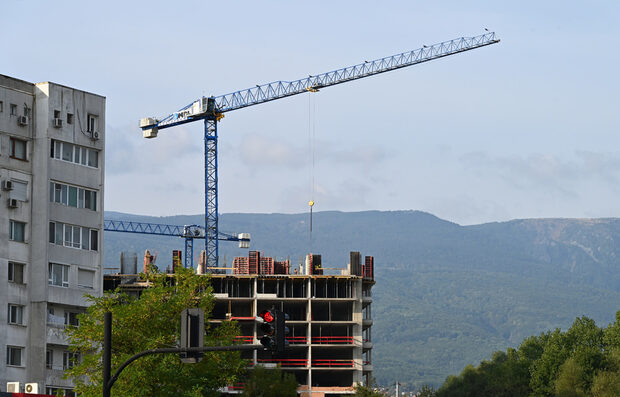Buying real estate is quite a serious investment - both of financial means and time. It requires searching for the right property, going to viewings, talking to brokers and owners, and getting documents. In case you are taking out a loan for the purchase you have to deal with more administrative issues. In this regard, pre-construction contracts, as set out in the Law on Obligations and Contracts (Art. 19), are very desirable when purchasing a property. Using this kind of contract can help you avoid a number of problems - for example, the seller refusing to sell the property or stating that he has found a buyer willing to pay more and, as a result, wants to raise the price. Signing a pre-construction contract brings certainty to the relationship between the seller and the buyer during the period from its signing to the final notarization of the transaction, which transfers the ownership of the property. This contract obligates the seller not to offer the property to other buyers.
However, a pre-construction contract poses serious risks for prospective property buyers. Therefore, it is mandatory that before signing it buyers collect information from the public registers about the company that is building and/or selling the property.
Builders should verify the owner(s) of the land on which the building is to be constructed.
Buyers should also request a copy of the notary deed by which the right to build was established (under Bulgarian law the right to build is established only by a notary deed).
Before the preliminary contract is concluded, the building company should provide buyers with access to its building permit and construction documents such as the architectural designs/plans of the future building.
Signing a contract prior to obtaining Act 14 poses the greatest risk
One of the riskiest options is to sign a preliminary contract for the purchase and sale of real estate in a building that does not yet have Act 14 issued. At this stage, the risk of not completing the construction is high, so it is best to consult a property attorney.
Act 14 is issued upon assurance that the building meets key structural requirements. Once Act 14 is issued, the building gains the status of immovable property. This is the point at which the investor or developer becomes the owner of the property subject to the preliminary contract. In case of notary transfer of objects, the law requires the submission of an Act 14 certificate from the municipality describing the degree to which the building is constructed.
Establishing the right to construction
One of the best options for purchasing property in a building that is not even at the stage of rough construction, is to sign a preliminary contract for the sale of the real estate and the right to construction. This contract should include a timeframe in which the investor/builder will transfer the right to construction to the buyer. Thus, even if the builder subsequently goes bankrupt, the buyer will be protected to some extent. If the buyer has a right to construction, she will not have to compete with other creditors for compensation from the bankrupt builder.
Purchase prior to the issuance of Act 16
As construction progresses, Act 15 is issued. It states that the building is fully completed according to the approved investment projects. Act 16 is drawn up on the basis of Act 15. Act 16 establishes that the site is fit for its intended use.
In practice all units in the building are often transferred by deed before it has received Act 16. This is not illegal, as with the issuance of Act 14 the site acquires an independent status and becomes the property of the investor/developer company. However, the building is not formally habitable prior to the issuance of Act 16, even if the buyers have covered the whole cost.
Therefore, the preliminary contract should include clauses which protect the rights of the buyer in case the builder/investor fails to procure an Act 16 by a certain date. Based on the contract, the builder ought to incur penalties for each month of delay.
Indexation in case of a contract for workmanship
Recently, claims to price indexation by the builder have caused problems for buyers. In cases like these builders reference the rising costs of building materials in pressuring buyers to sign an addendum for price indexation.
The provision of Art. 266, para. 2 of the Contracts law states that "the price shall be subject to indexation when the prices of construction materials and labour change".
However, a preliminary contract is a type of bond contract whereby the investor/developer promises to transfer the title to a certain object (real estate) to the buyer within a certain period and at a certain price. If the preliminary contract does not describe the specific construction activities to be carried out, this clause should not apply. The investor/developer would not be able to invoke it as there would be no contract for workmanship under the Contracts law.
Indexation due to an extraordinary circumstance (force majeure)
The legal institute of force majeure (according to Article 306 of the Commercial Law), is an unforeseen or unpreventable event of an extraordinary nature occurring after the contract has been closed.
Rising material costs are hardly an unforeseen event. After all, the investor and the builder are traders and are professionals within the meaning of the Commercial Law. They can hardly prove force majeure, given that the rise in the price of building materials could not have been "unforeseeable" to a professional in this field.
Art. 306 of the Commercial Law provides that the investor/developer who cannot fulfill their obligation due to force majeure must notify the buyer in writing within a reasonable time what the force majeure consists of and the possible consequences of it for the execution of the contract. In most cases the sellers (investor/builder) do not meet this requirement.
Examples of force majeure are acts of war, strikes, lockouts (when the employer suspends operations and prevents workers from entering the establishment), natural disasters, fires, earthquakes, etc. Administrative prohibitions on certain activities, if not the result of the person's culpable conduct, may also constitute force majeure. An example is the embargo.
Reference to economic infeasibility
The same is true for the investor/developer's reference to the so-called economic intolerance. Under the provision of Art. 307 of the Commercial Law this represents the occurrence of circumstances which the parties could not foresee and were not obliged to foresee.
When the investor/developer seeks to enter into an annex to the preliminary contract to index the price on the grounds of economic infeasibility, she should prove the existence of this legal institute before a court of law. The court may modify or terminate the contract in whole or in part where circumstances have arisen which the parties could not have feasibly foreseen.
According to the case law, in order to request the modification or termination of a contract on the grounds of economic unfeasibility, the debtor must not be in a state of insolvency or over-indebtedness. Such circumstances would provide grounds for opening insolvency proceedings, and in this case the law provides for another procedure to alleviate the debtor's situation - the possibility of reorganizing the company.
The buyer's options
The buyer has several options to act, regardless of the reason invoked by the investor/developer to claim indexation of the price of the property subject to the preliminary contract.
The buyer may refuse to enter into an annex to the preliminary contract with the price changes desired by the investor/developer. There is, however, a risk that the investor/developer will sell the property to a third party if it runs a loss, is unable to complete the construction, becomes factually insolvent or is subject to insolvency proceedings.
Another possible consequence is that the investor/developer becomes insolvent or over-indebted and cannot complete the construction at all. If this happens before the property or the building right is transferred by deed, the buyer may be left empty-handed. In insolvency proceedings, none of her claims will be granted as she would be privileged under the law.
In the above-mentioned hypotheses, the best option for the buyer is to consult a lawyer who deals with property and contract law. After reviewing the preliminary contract, subsequent contracts and annexes between the parties, the lawyer will give an adequate proposal for the various options that are open to the buyer - negotiations, minimum price indexation, cancellation of the preliminary contract, etc.
Kristina Gotsova has a Law degree from Sofia University St. Kliment Ohridski. She has been part of the team of Georgieva, Fitkovski & Tonev law firm since 2014. Her practice includes legal advice and representation in civil and commercial matters, warrant and execution proceedings, administrative law and procedure, tax law, legal advice related to property law issues and investments in real estate, legal advice on family law and inheritance law issues, legal work on drafting documents for public procurement procedures and representation before administrative authorities.
Read More












